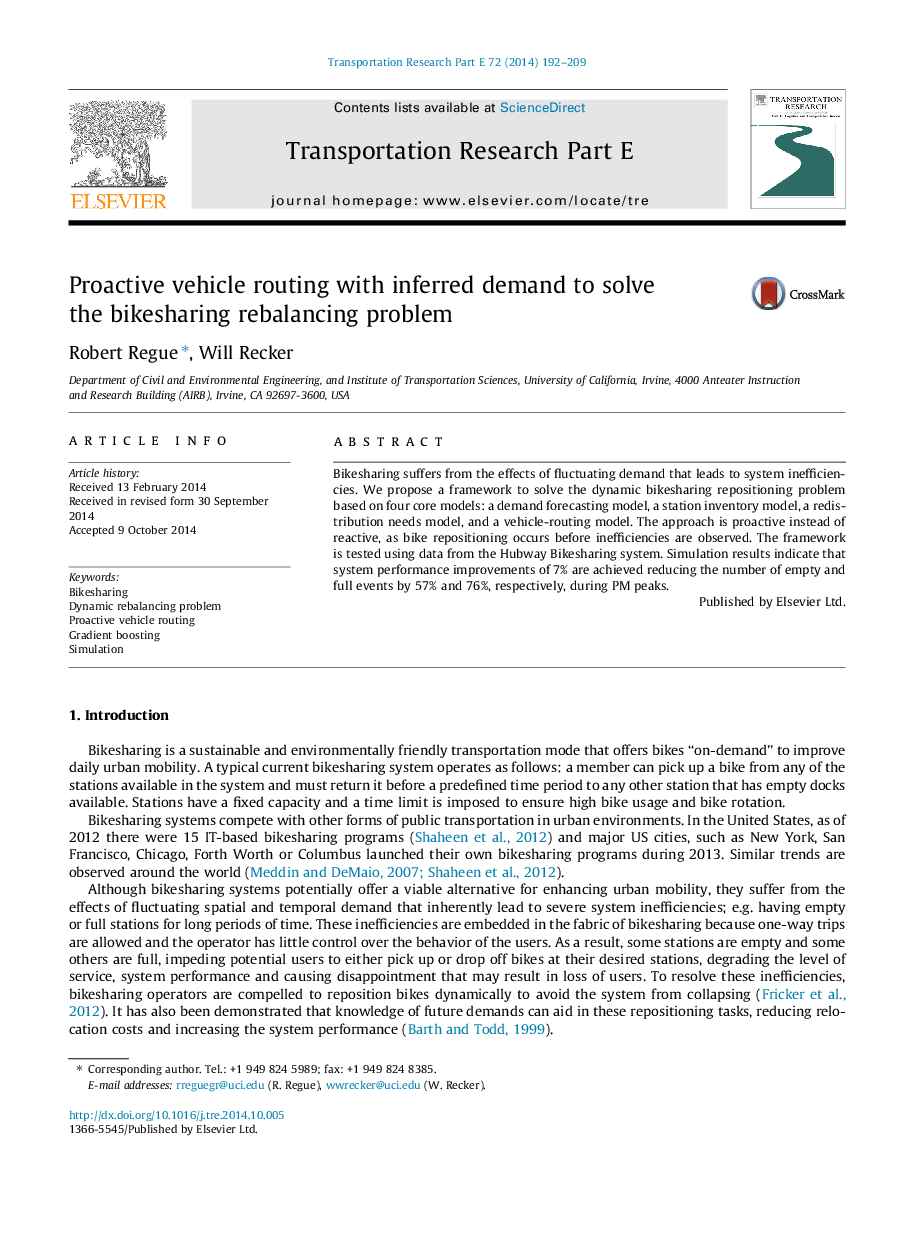| Article ID | Journal | Published Year | Pages | File Type |
|---|---|---|---|---|
| 1023170 | Transportation Research Part E: Logistics and Transportation Review | 2014 | 18 Pages |
•Solving the dynamic bikesharing repositioning problem with demand prediction.•Proactive instead of reactive modeling as demands are anticipated.•Self-adaptive models as new data are available.•Simulation framework to support bikesharing operators decision making.
Bikesharing suffers from the effects of fluctuating demand that leads to system inefficiencies. We propose a framework to solve the dynamic bikesharing repositioning problem based on four core models: a demand forecasting model, a station inventory model, a redistribution needs model, and a vehicle-routing model. The approach is proactive instead of reactive, as bike repositioning occurs before inefficiencies are observed. The framework is tested using data from the Hubway Bikesharing system. Simulation results indicate that system performance improvements of 7% are achieved reducing the number of empty and full events by 57% and 76%, respectively, during PM peaks.
